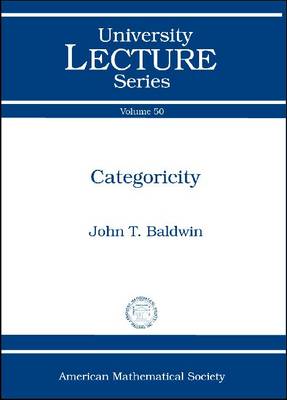University Lecture
1 total work
Modern model theory began with Morley's categoricity theorem: A countable first-order theory that has a unique (up to isomorphism) model in one uncountable cardinal (i.e., is categorical in cardinality) if and only if the same holds in all uncountable cardinals. Over the last 35 years Shelah made great strides in extending this result to infinitary logic, where the basic tool of compactness fails. He invented the notion of an Abstract Elementary Class to give a unifying semantic account of theories in first-order, infinitary logic and with some generalized quantifiers. Zilber developed similar techniques of infinitary model theory to study complex exponentiation. This book provides the first unified and systematic exposition of this work. The many examples stretch from pure model theory to module theory and covers of Abelian varieties. Assuming only a first course in model theory, the book expounds eventual categoricity results (for classes with amalgamation) and categoricity in excellent classes. Such crucial tools as Ehrenfeucht - Mostowski models, Galois types, tameness, omitting-types theorems, multi-dimensional amalgamation, atomic types, good sets, weak diamonds, and excellent classes are developed completely and methodically. The (occasional) reliance on extensions of basic set theory is clearly laid out. The book concludes with a set of open problems.
